Navigating food allergies on a budget can seem like a near impossible task. If food allergies and special diets are causing your food budget to sky rocket, check out my tips for reigning back in the costs.
Dealing with food allergies and special diets can be a real budget buster. It can truly feel overwhelming learning the ropes especially if you are on a budget. There are all kinds of special foods, alternative ingredients, and new ways of cooking. I have been there. I feel your pain.
What Are Common Food Allergies?
According to Food Allergy Research and Education, the top nine allergens are:
- wheat
- dairy
- tree nuts
- peanuts
- soy
- eggs
- fish
- shellfish
- sesame
Although these are the most common, you can be allergic to really anything. Corn is another common food allergy that isn't listed in the top nine, but it is in a ton of packaged food. Other people may not have true allergies but they have food sensitivities where they don't feel well after consuming certain foods and choose to avoid their triggers. There are so many special diets to learn while trying to navigate these food allergies and sensitivities.
My daughter and I have both dealt with food allergies over the years. At one point tree nuts, peanuts, wheat, dairy, coconut, sesame, and soy were all foods we avoided. Yes, it was overwhelming and our food budget increased for a while as we were in the learning process, but these are some of the steps I took to bring it back into place.
Strategies for Dealing with Food Allergies on a Budget
My original post of how to save money on food is a very popular post of mine and I encourage you to read it also, but here are a few more steps specific to special diets and food allergies.
Plan and cook from home
This is true for anyone, but cooking at home is going to be way more economical than eating out, especially when dealing with food limitations. A fast-casual meal out that fits into our food allergy requirements, can easily cost us the same as a third of our weekly food bought at the grocery store. A good meal out is at least half of my weekly grocery budget. It pays to eat at home.
If cooking at home seems overwhelming to you, focus on making a list of your family's favorite stupid easy meal ideas and make your plan based upon those. Do not overcomplicate this. Plan some slow cooker meals. Plan a one dish dinner with a protein, vegetables and carb. Plan meals where the leftovers can carryover to another meal so you aren't spending much time in the kitchen. Keep it simple, but make it a priority to eat from home. I promise you will save money.
Limit fancy replacements
While I'm very thankful that we live in a time where there are an abundance of options for substitutes to common food allergens, the fact is that the fancy replacements are pricey and can come with mixed results. I can't tell you how many different partial bags of flour I have in my pantry and freezer. So much wasted money. Instead limit the replacements altogether. Expensive fake cheese and cream cheese are good examples of something I just don't buy ever anymore. I don't like the ingredients, they don't taste great, and the cost isn't worth it for us.
Friday night used to be our pizza night tradition until we started dealing with dairy and wheat allergies. I tried making crusts and substituting dairy free cheese. None of us liked the results and we wasted a lot of money. Instead we found a new Friday night tradition of "fun food" Friday instead of pizza night. Sometimes it's buffalo chicken wings. Sometimes it's a snack board night. You get the idea.
Simplicity often works best. You may find yourself thinking differently though. Maybe you enjoy a lot of the specialty foods. That's fine. I would encourage you though to use them sparingly and look for ways to either only buy them on sale or find a source that has a great bulk price.
Price shop
It pays to know your prices on food. Like I talk about in my ebook, tracking a handful of your common purchases can go a long way to saving money on food. I buy sunflower butter instead of peanut butter, which is much more expensive. It is worth it to me to track the cost of that item at multiple stores and online retailers to find out who has the best price. If I know what the normal price is, I can spot a good sale and know when there is a "stock up" price.
Online retailers may be a better option for you to find bulk prices or discount prices of certain goods as well. It can't hurt to shop around at Walmart, Aldi, Costco, Amazon, Azure Standard, and Thrive Market to price shop your favorite speciality foods.
Find what works for you and stick to it
I made myself crazy and spent a lot of money on experiments. I'm not sorry that I went through that though because we quickly found out what we liked and what we didn't. The faster you can narrow down your staples and quit experimenting, the better. I realized that I didn't like making my daughter's specialty bread from scratch. We found one brand of bread that we liked, stock up when it's on sale and with coupons, and now we keep it in the freezer and use it sparingly for the two of us. The guys in our family eat regular bread.
Very few experiments happen anymore, which definitely cuts down on costs. It is certainly not a bad thing to try new recipes and experiments, but the faster you can get out of the experimental phase, the better. Here are some examples of some ways we found what works for us:
- We found one thickening agent that we preferred and quit using the rest.
- I achieved a "creamy" consistency in soups and sauces by blending part of the soup to give a creamy texture instead of using cream or coconut milk.
- In the rare event of needing a milk alternative, we choose oat milk because my daughter liked it best.
- Gluten-free oats became our preferred flour alternative to make pancakes and muffins.
Focus on what inexpensive items you can eat
It can be defeating to think about all of the foods you can't eat anymore, so don't! Change your mindset, flip it to the positive, and make a list of foods you can eat instead of constantly looking for alternatives for your no-no list. What healthy foods can you eat that are naturally inexpensive? Oats, potatoes, rice, fruit, veggies, applesauce, seeds, and legumes might be foods that fit in your plan and are super cheap. Make these the bulk of your diet.
Skip buying all of the special allergy friendly snacks, multiple special flours, alternative dairy products, obscure ingredients, and more trying to re-create the old favorites and instead brainstorm meals that already fit your requirements without substitutions. We mainly focus on a protein, vegetables, and starch at a meal in various forms and don't try to be fancy. Simple food is usually naturally allergy-friendly anyway, cost effective, and generally healthy.
Shop at cheaper stores
Thankfully Whole Foods isn't the only store with allergy-friendly foods. Most stores carry even the specialty packaged goods if you want to go that route. Aldi has great gluten-free line that I have been impressed with when in a pinch. Read what healthy foods I like to buy at Aldi. Walmart usually has decent prices too on specialty goods. Don't get carried away by the name brand speciality foods that Instagram influencers are promoting that can only be found at Whole Foods. If you find them on a sale, fine, but good allergy friendly food can be found at just about every grocery store in the country. Also there are plenty of generic brands that are just as good.
What are your favorite ways to deal with allergies and special diets on a budget? I'd love to hear from you in the comments below.
PIN IT FOR LATER


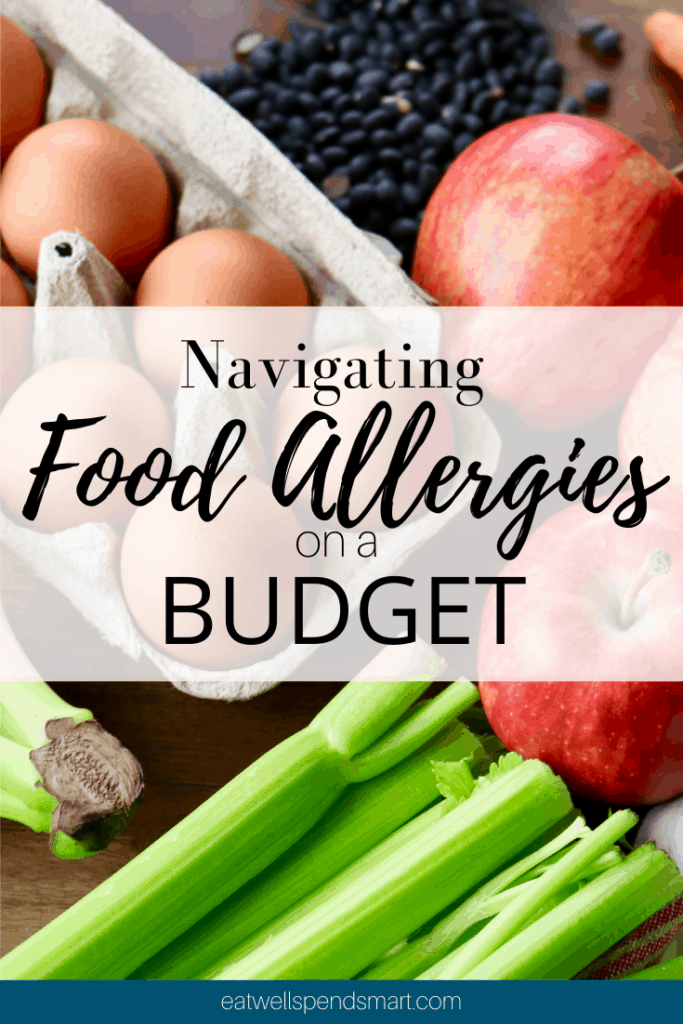
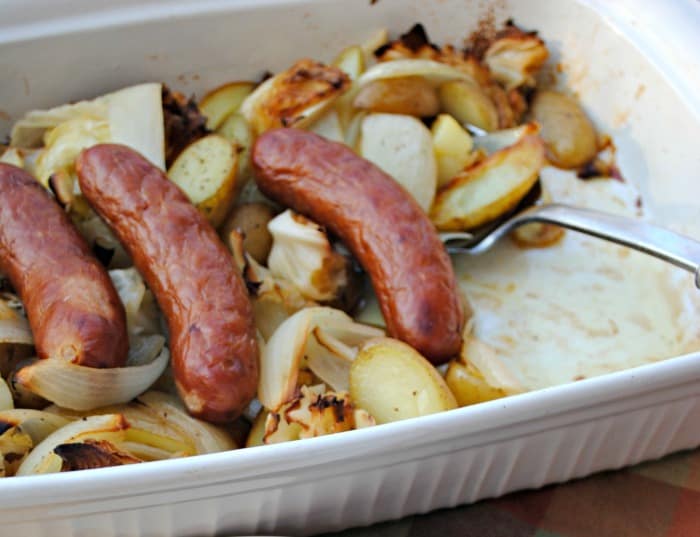
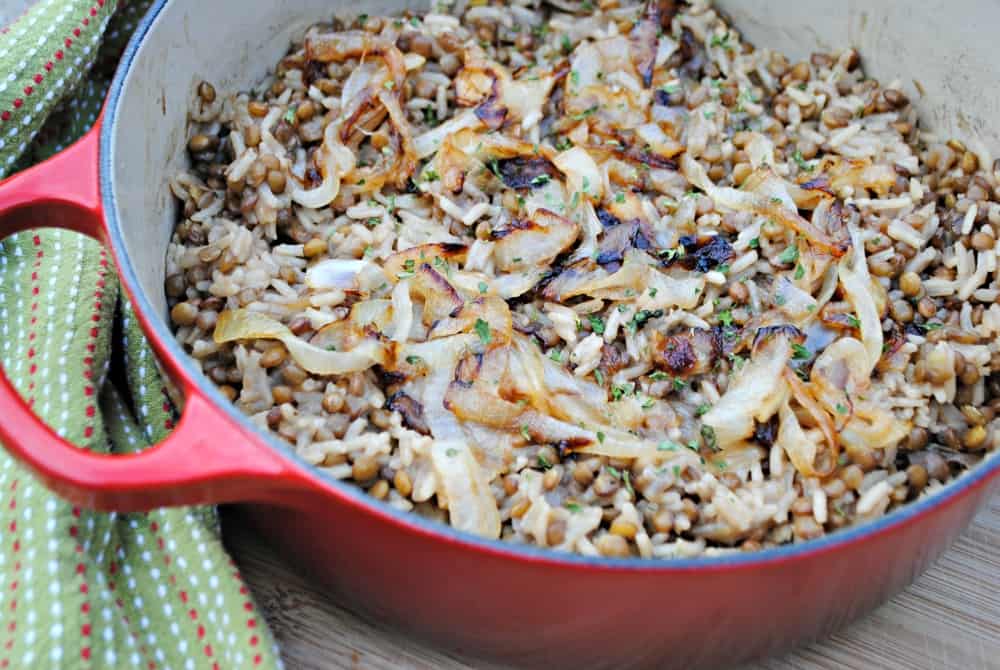
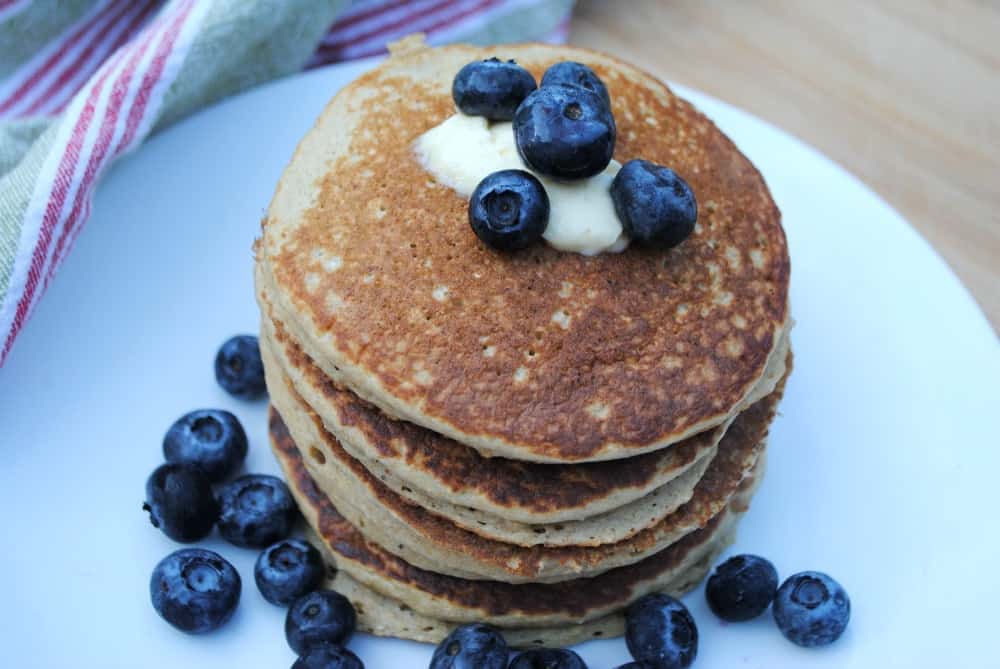
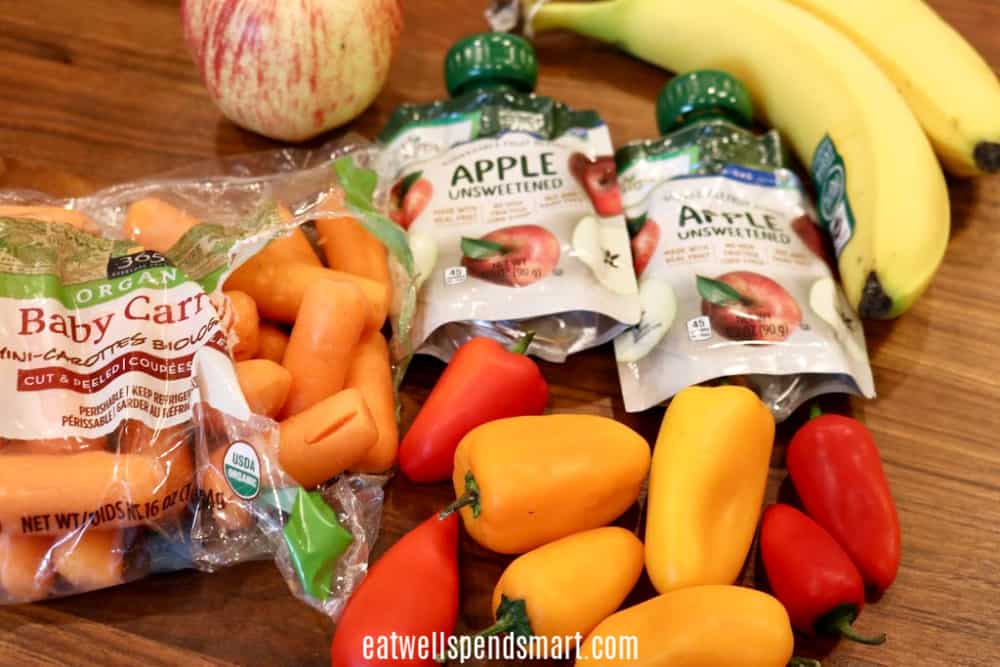
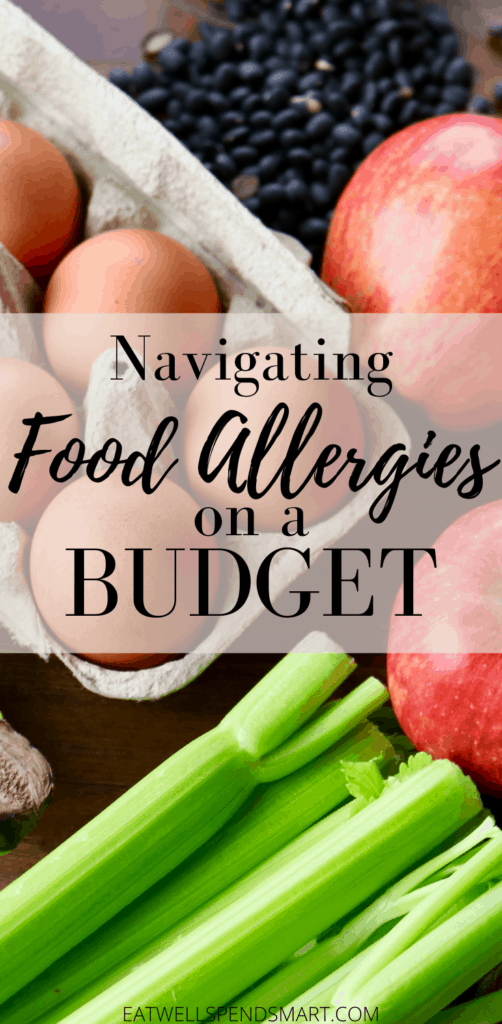
Michelle
A few months ago, I was diagnosed with multiple food allergies, and have been struggling with the budget...well, I was struggling with the budget before, lol, but now even more so. I too am through with experimenting, but it has been a steep learning curve! You are right on about the half used alternative flours piling up, good grief, they are so expensive and rarely deliver edible results! Not buying them anymore was part of my New Year’s resolution. It’s really been a sort of grieving process as I lay to rest some favorite foods, but I have discovered some new ones and it’s so worth it to feel better. Definitely been doing a lot of simple dinners. Thank you for this post; it’s comforting to know I am not alone!
Tara Buss
There is a grieving process for sure. I hope you find your sweet spot soon. Thanks for the comment, Michelle and best wishes to you.
Diinaus
I was very excited to see this in my in box.
Our family is coeliac. We started the journey over a decade when we were first married. Being newly married and newly diagnosed as both being coeliac made for some great team building as we came to grips with the challenge. Much of what you write holds true. Looking to other cultures who were not dependent on gluten grains for their staples was a starting point for us. Ie Indian, Mexican,Thai .A loaf of bread is a real treat that is enjoyed once a week typically on Sunday.
Tara Buss
Yes, great tip on looking to other cultures and cuisines for inspiration. Thanks for chiming in!
Vanessa
My 17-year-old has reacted badly to dairy his whole life. He made the decision himself that he would rather live without dairy than feel sick, so we are really trying to find things that work for him. Thanks for sharing this article.
Tara Buss
Best of luck to you and your son, Vanessa!